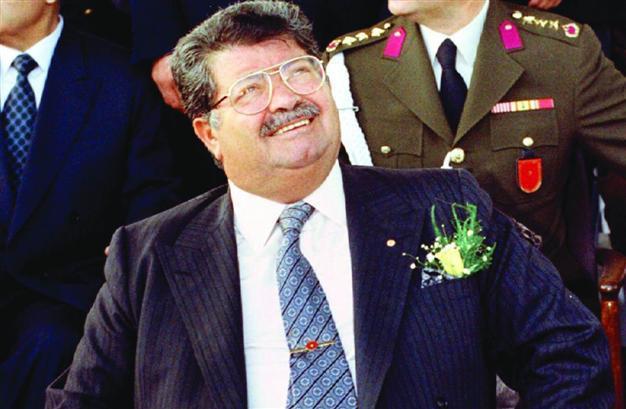Late President Özal 'not poisoned to death'
WASHINGTON - Agence France-Presse

A prosecutor puts an end to the longstanding
controversy on Özal’s death. REUTERS photo
A report by Turkey’s Forensic Medicine Institute (ATK) has not found any evidence that late President Turgut Özal was poisoned to death following a recent autopsy, officials announced yesterday.
The statement by the Ankara Chief Prosecutor’s Office, however, also said the investigation over late President Özal’s death would resume with the help of other findings and evidence.
The prosecutor’s office received the ATK’s report, which was unanimously approved by the institute’s experts, earlier this week.
There were no clinical and laboratory findings that suggested ex-President Özal had been poisoned or that there was radioactive material present in his body, the statement said.
Nonetheless, the prosecutor’s office also said the definitive cause of Özal’s death could not be determined because an autopsy was not immediately conducted following his death in 1993. Authorities also said a sudden cardiac death – the reason officially given at the time – could not be excluded as the cause of Özal’s death.
The level of heavy metals, including cadmium, found in the autopsy samples are in line with the tissue level among the normal population, as well as with the postmortem tissue level, the statement said, noting that late President Özal did not die to exposure due to heavy metals.
Forensic experts exhumed Özal’s body in October and tested samples for possible poisoning after an official report concluded that his death was suspicious.
When Özal, who had undergone triple bypass surgery in 1987, died, doctors blamed heart failure. But no autopsy was performed, and family members have long claimed the president might have been poisoned.
Following the release of the report, Ankara Deputy Chief Prosecutor Nuri Yiğit was asked whether the investigation would continue despite such findings.
“Our prosecutor in charge of the investigation on this issue will use his discretional authority in line with the law and the regulations on this issue, ” Yiğit said.
Özal was elected prime minister in 1983 in the aftermath of the Sept. 12, 1980, military coup and later became the country’s eighth president in 1989. Born in the eastern province of Malatya, Özal was of partial Kurdish origin, and his policies led to a huge liberalization of the Turkish economy. However, his tenure in office was cut short when he died on April 17, 1993.
Doubts about the cause of Özal’s death, however, were never addressed because no autopsy was performed following his passing. His widow, Semra Özal, and Ahmet Özal have claimed that he was assassinated by heavy metal poisoning.
Prosecutors reopened the case after Turkey’s State Audit Board (DDK) in a report last June ruled Özal’s death “suspicious” and said it should be investigated.
The DDK report said the failure to perform an autopsy at the time of death was inexplicable. In addition, the lack of written procedures on the process for issuing statements on the deaths or serious injuries of sitting presidents also contributed to the speculation surrounding Özal’s death.
The DDK report also highlighted the lack of necessary medical equipment at the Çankaya Presidential Palace at the time of Özal’s death.
